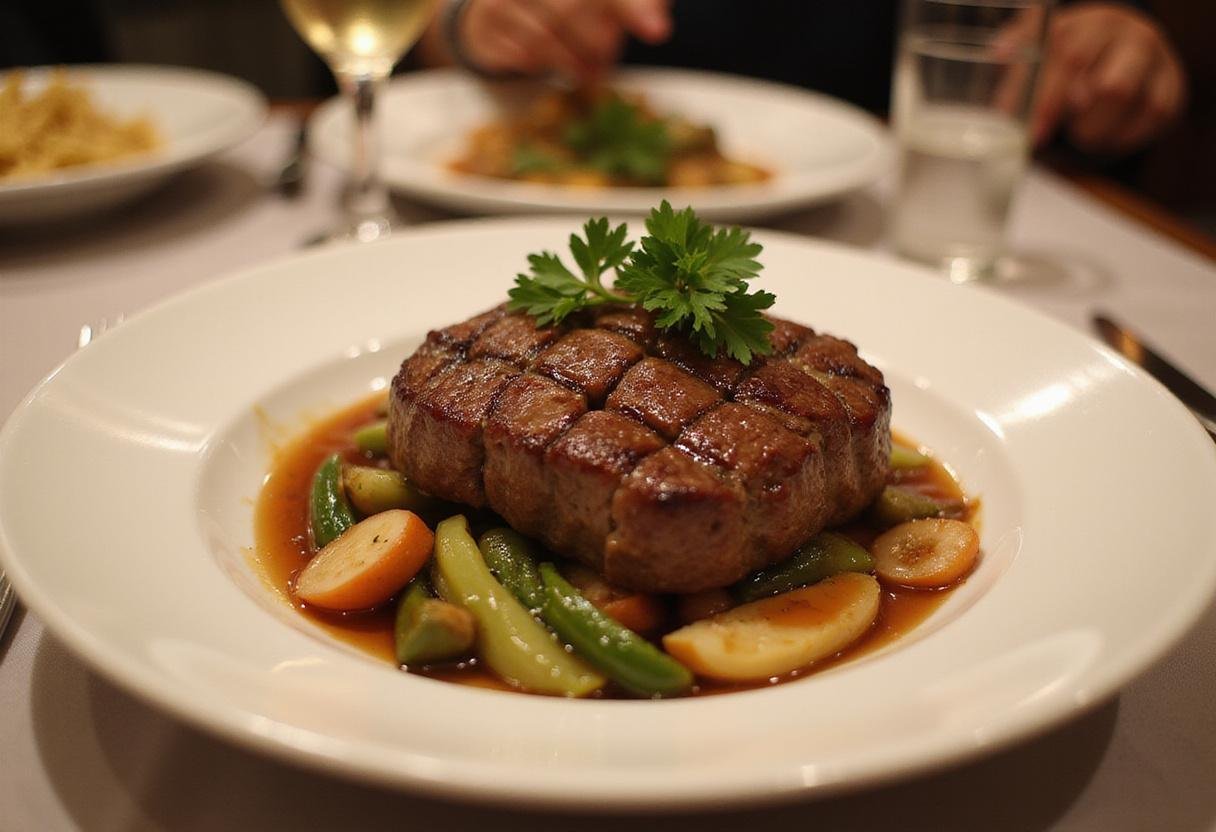Wagyu Beef: A Luxurious Delight with Health Benefits 🌟🥩🍃
1. Introduction
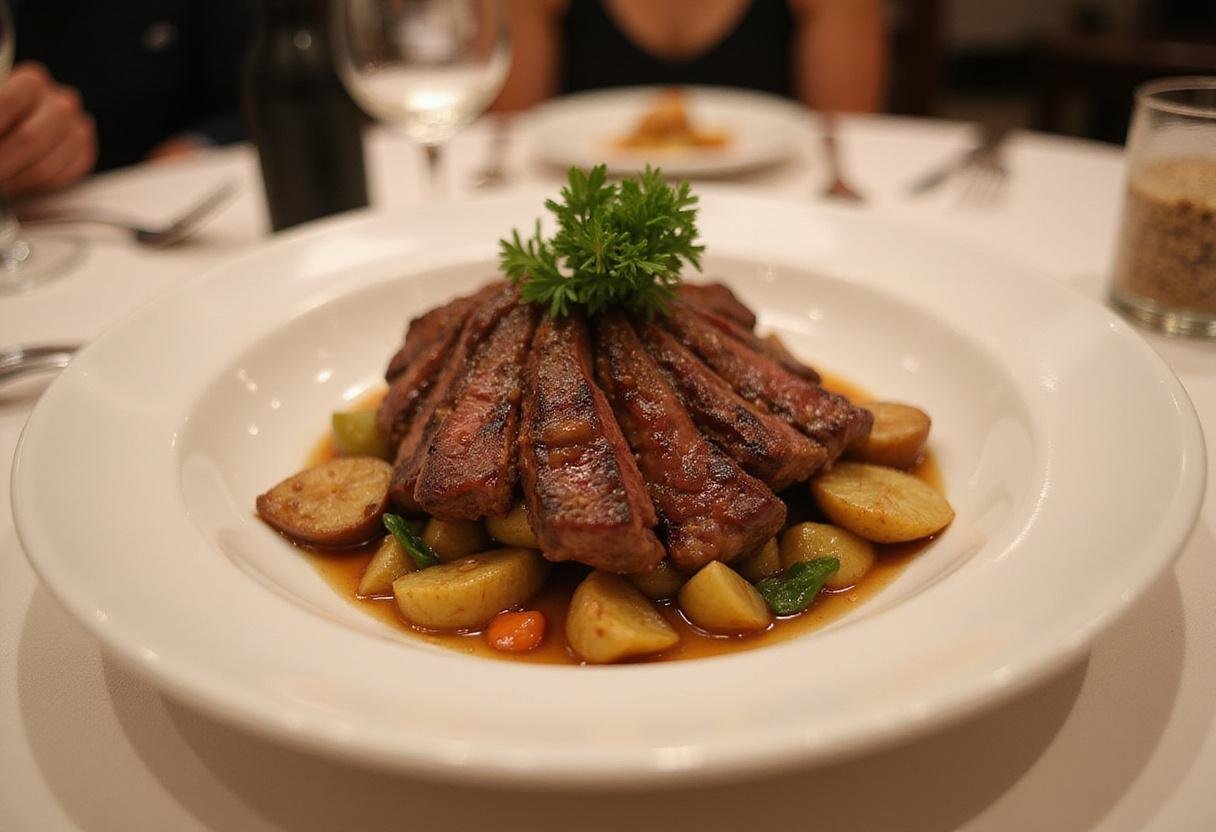
Wagyu beef is celebrated worldwide for its exquisite flavor, melt-in-your-mouth texture, and the luxurious dining experience it offers. But beyond its culinary appeal, wagyu beef is also gaining recognition for its potential health benefits. As more people seek gourmet options that align with a healthy lifestyle, the question naturally arises: “Is wagyu beef healthy?” This article delves deep into the health aspects associated with consuming wagyu beef, exploring its nutritional profile, potential benefits, and how to enjoy it responsibly, ensuring it’s not only a treat for your palate but also a smart choice for your well-being. If you’re looking for more delicious dinners to accompany your Wagyu, why not try our dinner recipes?
2. What is Wagyu Beef?
Wagyu beef originates from specific breeds of Japanese cattle, genetically predisposed to develop intense intramuscular marbling. This marbling, the fine streaks of fat dispersed throughout the muscle, is what gives wagyu beef its signature tenderness and flavor. The unique fat composition and distribution make wagyu a sought-after delicacy worldwide. Originating from Japan, wagyu has gained worldwide acclaim and is often considered one of the best beef types available. Learn more about the health benefits of wagyu beef on this external site.
3. Nutritional Profile of Wagyu Beef
When analyzing if wagyu beef is healthy, examining its nutritional profile is essential. Wagyu beef is packed with high-quality protein, essential omega-3 and omega-6 fatty acids, and a significant amount of monounsaturated fats. Let’s break down the key nutritional elements:
– **High-Quality Protein:** Essential for muscle repair, growth, and overall body function.
– **Healthy Fats:** Rich in monounsaturated fats, which can help lower bad cholesterol levels and reduce the risk of heart disease.
– **Omega-3 Fatty Acids:** Important for brain health, reducing inflammation, and supporting cardiovascular function.
– **Vitamins and Minerals:** Contains vital nutrients such as Vitamin B12, zinc, iron, and niacin, each playing critical roles in maintaining health.
4. Health Benefits of Wagyu Beef
So, is wagyu beef healthy? The answer is a resounding yes, when consumed in moderation as part of a balanced diet. Here are some health benefits to consider:
– **Heart Health**: The presence of omega-three fatty acids and a favorable monounsaturated to saturated fat ratio in wagyu beef can positively influence cardiovascular health by helping to regulate cholesterol levels.
– **Muscle Growth and Repair**: As a complete protein source, Wagyu provides all the essential amino acids necessary for muscle repair and growth, making it a valuable option for athletes and those seeking to build lean muscle mass. For another high-protein option, check out our herb lemon grilled chicken recipe.
– **Improved Energy Levels**: Rich in iron and B vitamins, wagyu beef can help combat fatigue and boost energy levels, contributing to overall vitality.
– **Taste Satisfaction**: Although not a direct health benefit, the unparalleled flavor and texture of wagyu beef promote a more satisfying and mindful eating experience, potentially reducing overeating and supporting a healthy relationship with food.
5. Preparing Wagyu Beef Safely
Step 1: Ensure Safe Preparation

Prioritizing food safety is crucial when preparing wagyu beef. Always start with a clean and sanitized workspace to prevent cross-contamination. Ensure that all surfaces, cutting boards, and utensils are thoroughly cleaned before handling the meat. Always handle your meat safely and ensure it is stored properly.
Step 2: Seasoning for Optimal Flavor
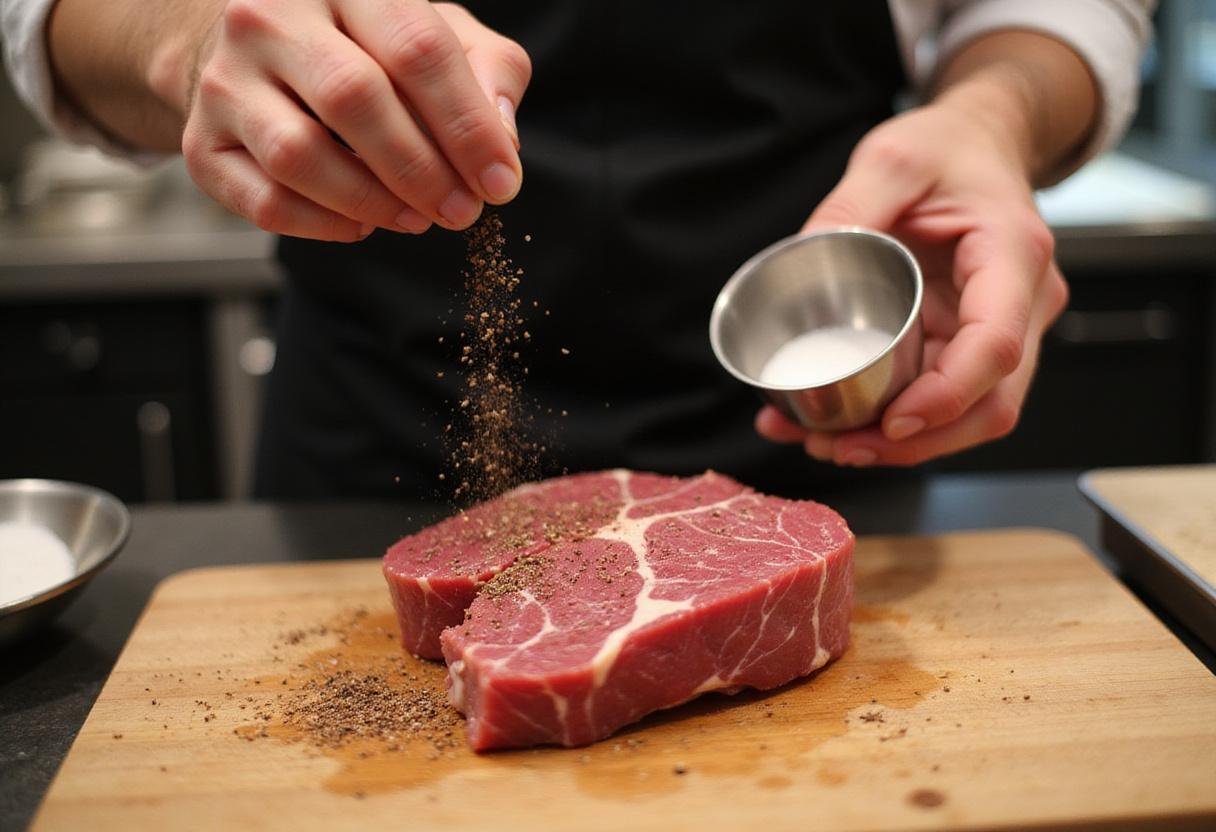
When seasoning wagyu beef, less is often more. A simple combination of high-quality sea salt and freshly ground black pepper is often sufficient to enhance the meat’s natural flavors. For those seeking a gourmet twist, consider adding a touch of garlic powder or finely chopped fresh herbs such as thyme or rosemary.
Step 3: Cooking to Perfection
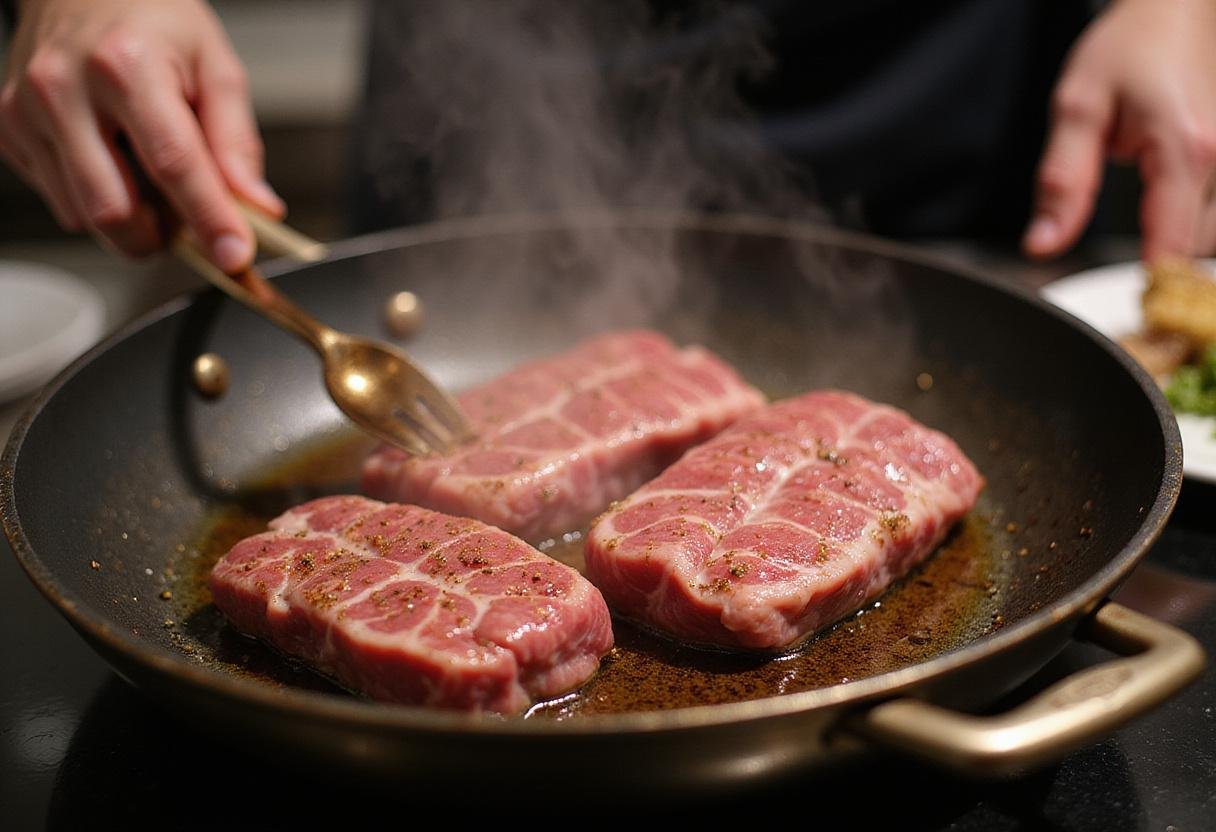
Achieving the perfect sear is essential for unlocking wagyu beef’s full flavor potential. Cook it to medium-rare, where the internal temperature reaches approximately 130-135°F (54-57°C). This ensures the fat renders beautifully while keeping the meat tender and juicy. Consider using a cast-iron skillet for even heat distribution and a perfect crust.
Step 4: Plating with Balance
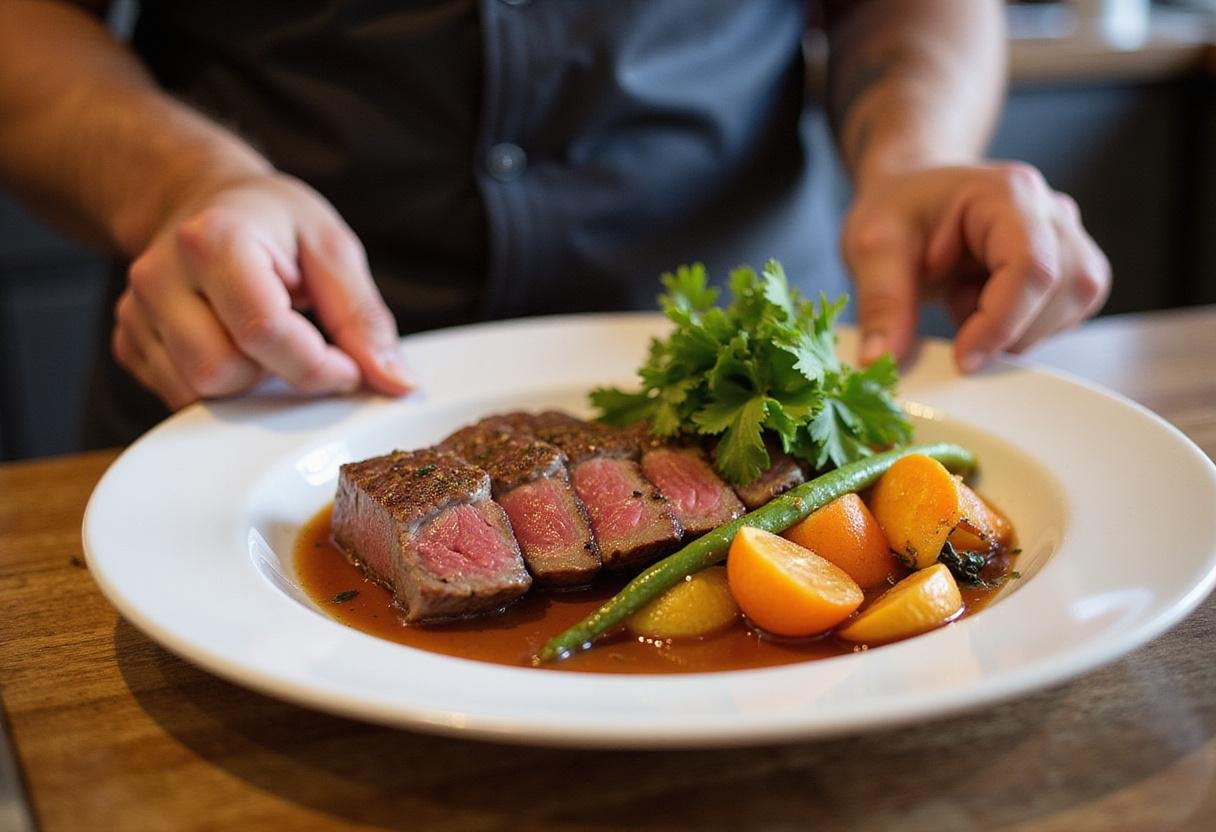
To create a balanced and nutritious meal, pair wagyu beef with vibrant, fresh vegetables. Options like asparagus, broccoli, bell peppers, and leafy greens provide essential vitamins, minerals, and fiber, complementing the richness of the wagyu beef. To change it up, try our grilled vegetable quesadilla!
6. Storage Tips for Wagyu Beef
Proper storage is essential to preserve the quality and nutritional value of wagyu beef. Keep it in the refrigerator at a temperature of 40°F (4°C) or below, using airtight packaging to prevent moisture loss and freezer burn. For extended storage, freeze the wagyu beef, ensuring it is well-sealed to maintain its flavor and texture for several months.
7. Serving Suggestions
Wagyu beef can be served in a multitude of ways, each offering a unique culinary experience and health benefits. Pair it with sautéed vegetables, a light salad, or creamy mashed potatoes for a balanced meal. Alternatively, consider serving it as part of a Japanese-inspired meal with rice and miso soup. The possibilities are endless!
8. Frequently Asked Questions (FAQs)
**Q1: Is wagyu beef healthy for heart health?**
A1: Yes, wagyu beef contains a higher proportion of monounsaturated fats and omega-three fatty acids compared to conventional beef, which can contribute to heart health when consumed in moderation.
**Q2: How should wagyu beef be cooked for optimal health benefits?**
A2: Cooking wagyu beef to medium-rare is recommended to preserve its beneficial nutrients and enhance its natural flavors. Overcooking can diminish the healthy fats and dry out the meat.
**Q3: Can I include wagyu beef in a balanced diet if I have diabetes?**
A3: Absolutely! Incorporating wagyu beef in moderation as part of a balanced diet for diabetes is possible. Its high protein content can help stabilize blood sugar levels, but be mindful of portion sizes. You can also check out our diabetic-friendly slow cooker meals for more ideas.
9. Conclusion
In conclusion, when addressing the question of “is wagyu beef healthy?”, it is evident that this premium meat offers a wealth of potential health benefits. When enjoyed thoughtfully as part of a well-rounded diet, wagyu beef can provide essential nutrients, support heart health, promote muscle growth and repair, and contribute to overall well-being. So, embrace the indulgence, savor the exquisite flavors, and appreciate the health aspects that wagyu beef brings to your dining experience! You can also try our delicious zesty crispy potato salad for an unforgettable meal!
“`
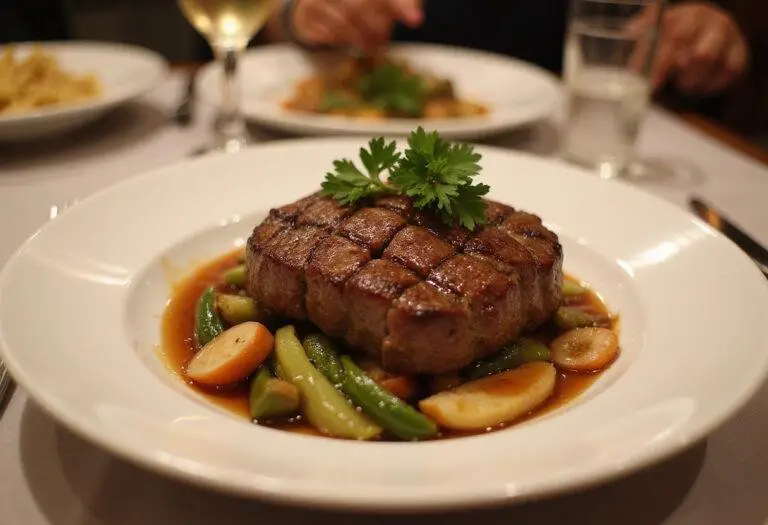
Wagyu Beef Health Aspects?
Explore the health benefits of Wagyu beef, a luxurious and flavorful meat known for its rich marbling and nutritional profile. This article unveils why Wagyu beef deserves a spot on your plate, even for the health-conscious.
- Total Time: 25 minutes
- Yield: 2 servings 1x
Ingredients
- Wagyu beef
- Salt
- Pepper
- Garlic (optional)
- Fresh herbs (optional)
- Fresh vegetables for plating
- Side dishes of choice (e.g., mashed potatoes, salad)
Instructions
- Ensure a clean preparation area and use fresh ingredients.
- Season the wagyu beef with salt, pepper, and optional garlic or herbs.
- Cook the wagyu beef to medium-rare for optimal flavor and nutrient preservation.
- Plate the cooked beef alongside fresh vegetables for a balanced presentation.
- Store any leftovers properly in the refrigerator or freezer.
Notes
- Wagyu beef is best enjoyed in moderation due to its high-fat content.
- Pairing wagyu with fresh vegetables enhances nutrition and flavor.
- Consider a fine wine for a gourmet experience.
- Prep Time: 15 minutes
- Cook Time: 10 minutes
- Category: Main Course
- Method: Grilling or Pan-searing
- Cuisine: Japanese
- Diet: Carnivore, Gluten-Free
Nutrition
- Serving Size: 4 oz
- Calories: 300 Kcal
- Sugar: 0g
- Sodium: 60mg
- Fat: 20g
- Saturated Fat: 9g
- Unsaturated Fat: 10g
- Trans Fat: 0g
- Carbohydrates: 0g
- Fiber: 0g
- Protein: 25g
- Cholesterol: 80mg

